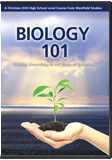
Ancient Protein a Potent Antimicrobial
Answers for antibiotic resistance sought in “ancient” Australian antimicrobials.
News Source
- NewScientist: “Resurrected Ancient Protein Is a Potent Antibiotic”
Antibiotic resistance is a growing problem. In the spirit of biomimicry, scientists down under have discovered a uniquely Australian solution which may provide some life-saving answers.
Conventional antibiotics usually attack bacteria by interfering with some necessary process in the bacteria’s life. Some bacteria harbor genes which give them a “work-around” for the targeted step. Those bacteria are already resistant to certain antibiotics. Therefore, when antibiotics kill off their neighbors, the survivors multiply to produce a resistant population.
Marsupial babies born long before they have mature immune systems must survive in fairly dirty environments.
Researchers funded by the Australian Research Council Centre of Excellence in Kangaroo Genomics thought Australia’s marsupials and monotremes might share some helpful secrets of their immunity. Why these creatures? Marsupial babies born long before they have mature immune systems must survive in fairly dirty environments. Monotremes also hatch long before their immune systems are ready to face the world. “It's not a clean environment,” says team leader Benjamin Cocks. “Without some sort of powerful innate immunity, these immune-compromised young could not survive.”
Many organisms produce broad-spectrum antibiotic peptides that defend them against many attackers. “During the course of evolution,” the researchers write, “nature has developed a vast array of antimicrobial peptides.”1 Cocks speculated that marsupials and monotremes “evolved under evolutionary pressure to protect immunologically naïve young”2 with lots of these antimicrobials. Furthermore, the “development of microbial resistance against naturally occurring antimicrobials is rare.”3
Many natural antimicrobials are toxic to humans. These researchers accept the evolutionary idea that marsupials, monotremes, and placental mammals diverged from a common ancestor. Therefore, they expected peptides from animals more closely related to humans to be “more likely to be compatible with humans.” The team examined the genomes of marsupials and monotremes looking for genes which code for cathelicidins. Cathelicidins destroy many kinds of bacteria, protozoa, and fungi by disrupting cell membranes. “Mammalian ancestors likely expressed a broad repertoire of cathelicidin peptides to protect their young,” they speculate. “Over time, with the evolution of longer gestation periods and the birth of young with greater immune competence, [most] cathelicidin genes were lost from the eutherian [placental] lineage.” 4
The team found 14 cathelicidin genes in the tammar wallaby and 8 in the platypus. Several of the corresponding synthetic gene products were very effective against a host of pathogenic bacteria and also appeared nontoxic to humans. Hopeful this discovery will have medical applications, Cocks said, “Now we have access to ancient peptides for future drug development.”
The researchers chose this avenue of antimicrobial research on the basis of their evolutionary beliefs.
The researchers chose this avenue of antimicrobial research on the basis of their evolutionary beliefs. But were those evolutionary beliefs the basis for their success? No. Do their findings support the idea that humans and platypuses share a common ancestor? No. Does the finding of some genetic similarities and compatibilities prove the genes came down 211 million years to the present from that ancient common ancestor? No, it does not.
The approach the team chose was wise because mammals share some common designs and therefore have fewer incompatibilities with humans than other sorts of animals would. And their choice of mammals was wise because our Common Designer God has evidently equipped marsupials and monotremes with extra protection for their immune-compromised young to enable them to survive in a dirty world.
Just as antibiotic resistance is not an example of evolution in action—since resistant bacteria only exchange genetic material between themselves and never become new kinds of organisms—neither is this discovery an example of the value of evolution in medical research. When scientists copy nature’s secrets for human use, they are making use of God’s designs.
All kinds of creatures were created by God during the week of Creation about 6,000 years ago. Bacteria are a necessary part of the world’s ecology but would not have caused disease in that pre-Fall world. Each kind of creature was fully equipped to function in the world and would have possessed perfect protection to prevent being overwhelmed by contact with bacteria. With this sort of genomic research, we can observe some of the extra provisions God made to safeguard the wallaby and the platypus, and we can imitate those features to to help people.
Further Reading
- Antibiotic Resistance an Age-Old Factor
- Antibiotic Resistance of Bacteria: An Example of Evolution in Action?
- Bacteria: More Good than Bad and Ugly
- The Role of Genomic Islands, Mutation, and Displacement in the Origin of Bacterial Pathogenicity
For More Information: Get Answers
Remember, if you see a news story that might merit some attention, let us know about it! (Note: if the story originates from the Associated Press, FOX News, MSNBC, the New York Times, or another major national media outlet, we will most likely have already heard about it.) And thanks to all of our readers who have submitted great news tips to us. If you didn’t catch all the latest News to Know, why not take a look to see what you’ve missed?
(Please note that links will take you directly to the source. Answers in Genesis is not responsible for content on the websites to which we refer. For more information, please see our Privacy Policy.)
Footnotes
- Jianghui Wang et al., “Ancient Antimicrobial Peptides Kill Antibiotic-Resistant Pathogens: Australian Mammals Provide New Options,” PLOS ONE August 30, 2011, doi:10.1371/journal.pone.0024030.
- Ibid.
- Ibid.
- Ibid.
Recommended Resources

Answers in Genesis is an apologetics ministry, dedicated to helping Christians defend their faith and proclaim the good news of Jesus Christ.
- Customer Service 800.778.3390
- © 2024 Answers in Genesis






